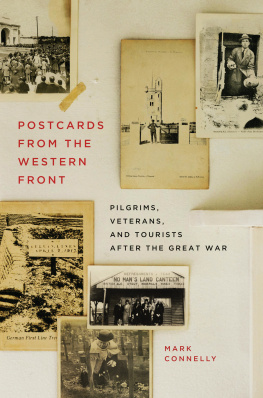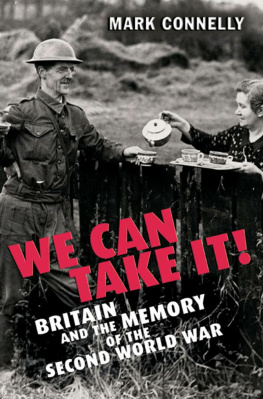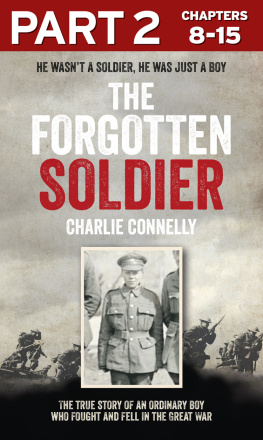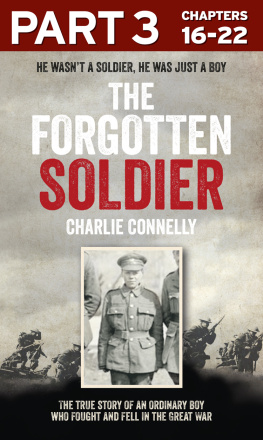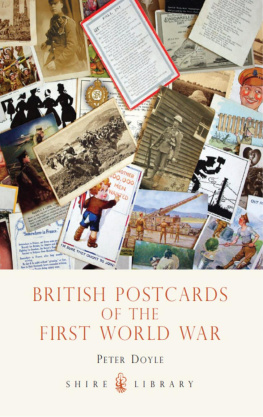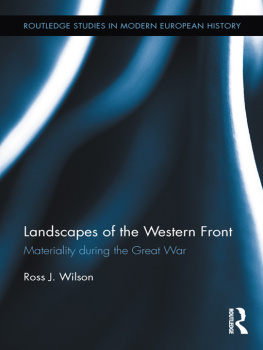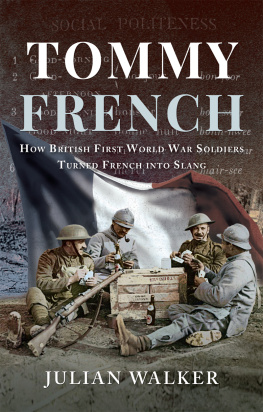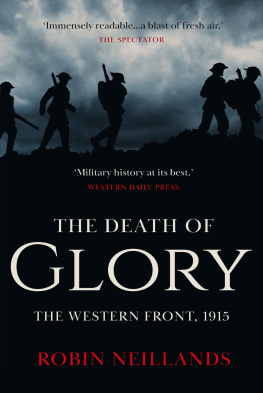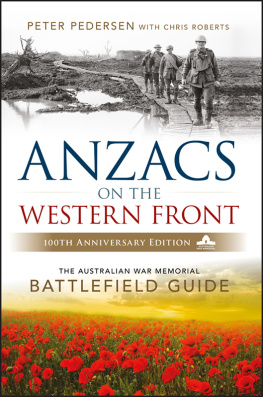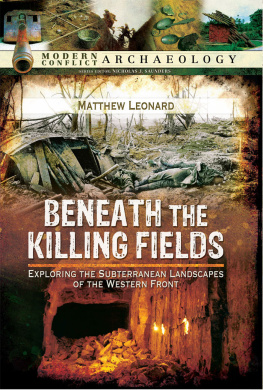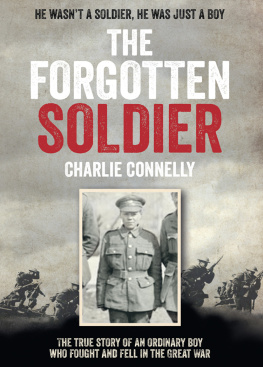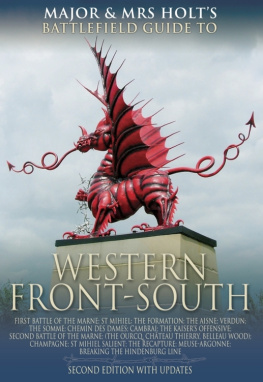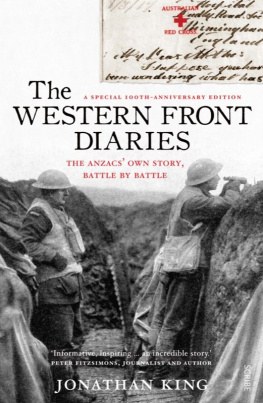Contents
Page List
Guide

POSTCARDS FROM THE WESTERN FRONT
Human Dimensions in Foreign Policy, Military Studies, and Security Studies
Series editors: Stphanie A.H. Blanger, Pierre Jolicoeur, and Stfanie von Hlatky
Books in this series illuminate thorny issues in national and international security, analyzing both military and foreign policy. They highlight the human dimensions of war, such as the health and well-being of military members, the factors that influence military cooperation and operational effectiveness, civil-military relations and decisions regarding the use of force, and the challenges of violence and terrorism, as well as human security and conflict resolution. Some authors focus on the ethical, moral, and legal ramifications of ongoing conflicts and wars, while others, through the lens of policy analysis, explore the impact of military and political strife on human rights and the role the public plays in shaping international policy.
Published in collaboration with Queens University and the Royal Military College of Canada, with the Centre for International and Defence Policy, the Canadian Institute for Military and Veteran Health Research, and the Centre for Security, Armed Forces, and Society, the series plays a pivotal role in reconceptualizing contemporary security challenges both in the academic realm and for broader publics.
15Women, Peace, and Security
Feminist Perspectives on International Security
Edited by Caroline Leprince and Cassandra Steer
16The Ones We Let Down
Toxic Leadership Culture and Gender Integration in the Canadian Forces
Charlotte Duval-Lantoine
17Postcards from the Western Front
Pilgrims, Veterans, and Tourists after the Great War
Mark Connelly
Postcards from the Western Front
Pilgrims, Veterans, and Tourists after the Great War
MARK CONNELLY
McGill-Queens University Press
Montreal & Kingston London Chicago
McGill-Queens University Press 2022
ISBN 978-0-2280-1189-7 (cloth)
ISBN 978-0-2280-1190-3 (paper)
ISBN 978-0-2280-1264-1 (ePDF)
ISBN 978-0-2280-1265-8 (ePUB)
Legal deposit third quarter 2022
Bibliothque nationale du Qubec
Printed in Canada on acid-free paper that is 100% ancient forest free (100% post-consumer recycled), processed chlorine free
Library and Archives Canada Cataloguing in Publication
Title: Postcards from the Western Front : pilgrims, veterans, and tourists after the Great War / Mark Connelly.
Names: Connelly, Mark, author.
Series: Human dimensions in foreign policy, military studies, and security studies ; 17.
Description: Series statement: Human dimensions in foreign policy, military studies, and security studies ; 17 | Includes bibliographical references and index.
Identifiers: Canadiana (print) 20220280517 | Canadiana (ebook) 20220280584 | ISBN 9780228011903 (paper) | ISBN 9780228011897 (cloth) | ISBN 9780228012641 (ePDF) | ISBN 9780228012658 (ePUB)
Subjects: LCSH: World War, 19141918BattlefieldsSocial aspectsGreat Britain. | LCSH: World War, 19141918BattlefieldsFrance. | LCSH: World War, 19141918BattlefieldsBelgium. | LCSH: World War, 19141918VeteransTravel. | LCSH: TourismFranceHistory20th century. | LCSH: TourismBelgiumHistory20th century. | LCSH: MemorializationGreat BritainHistory20th century. | LCSH: War and societyGreat BritainHistory20th century. | LCSH: Pilgrims and pilgrimagesFranceHistory20th century. | LCSH: Pilgrims and pilgrimagesBelgiumHistory20th century.
Classification: LCC D524.7.G7 C66 2022 | DDC 940.3/41dc23
This book was typeset in 10.5/13 New Baskerville ITC Pro.
Copy-editing and composition by T&T Productions Ltd, London.
Guide me, O thou great redeemer,
Pilgrim through this barren land;
I am weak, but thou art mighty,
Hold me with thy powerful hand.
Guide Me O Thou Great Redeemer (Cwm Rhondda)
Still stands His cross from that dread hour to this,
Like some bright star above the dark abyss;
Still, through the veil, the Victors pitying eyes
Look down to bless our lesser Calvaries.
Sir John Stanhope Arkwright, O Valiant Hearts (1919)
In a sense our pilgrimage was over. But mine was not over. I was beginning to realise more and more how much the past was with me; is with me. Maybe its true about a piece of me being in France and Flanders, in the earth or in the winds, part of me a ghost along with other ghosts walking Cambrin, High Wood, Passchendaele, talking with Raymond, Cedric, Neil, little Bert, Fletcher and the rest, looking at the world, pondering how it will go. I didnt feel ready to go back to England
James Lansdale Hodson, Return to the Wood (1955)
Contents
Figures
Unless otherwise attributed, all images are from the authors own collection.
Preface
Bob: Have you got a job yet?
Frank: Yes I had a bit of luck a chap called Baxter in my regiment, he was drafted out to Arras in February nineteen-seventeen and before the war he was running a sort of travel agency in Oxford Street well, he got a Blighty one and was invalided ome, and believe it or not, e was the first one I run into when I got back last April. Hed started his business again, and things were beginning to pick up, so he gave me a job.
Bob: Travel Agency whew!
Frank: Tours of the battlefields, Ill thank you!
Bob (laughing): Thats a good one.
Frank: Some people certainly do have queer ways of enjoying themselves.
Nol Coward, This Happy Breed (1939)
This history is driven by the words of British visitors to the battlefields and the visual images they took and collected. Some of those words were recorded in personal, private testimony; others were produced corporately for public consumption. Pain and anguish, pride and nostalgia, wonder and surprise were all expressed. Encountering the former fighting zones, especially in the first few years after the war before widespread and large-scale reconstruction had transformed the landscape, caused shock, amazement, awe, depression, and inspiration. None left the battlefields behind feeling indifferent about the experience, and regardless of their motivation for going, none could escape the fact that it was regarded as sacred ground, to be traversed with care and attention to its special qualities.
The bereaved came to see the graves of lost loved ones, or their names inscribed on the memorials to the missing. Some, unwilling to accept that a loved one was, indeed, missing, came out to search for the grave hoping they would stumble upon it somewhere, or perhaps uncover an error or omission in the recording of graves. When that hope faded and the memorial to the missing was accepted as the final place of commemoration, often there was the desire to visit precisely where the person was last seen, the place where they became one of the missing. As pilgrim testimony reveals, arrival at this place was regarded as a journeys end. It was the moment of release after a progression fraught with emotional, as well as physical, difficulty.
On the battlefields these pilgrims mingled with those who had fought over the ground, lived in the trenches, and spent their spare time in the towns behind the lines. Although Nol Cowards beautifully crafted ex-servicemen, Bob Mitchell and Frank Gibbons, from his play This Happy Breed may have deemed tours of the battlefields a queer form of entertainment, veterans were among the most committed and enthusiastic of battlefield visitors. Tramping over the old ground allowed them to indulge in the worst of times; slipping into well-remembered estaminets allowed them to indulge, once again, in the best of times. Fallen comrades could be saluted in the cemeteries and toasted over beers in the bar. Far from burying their old identities, veterans seemed desperate to disinter them once back in Flanders Fields.

